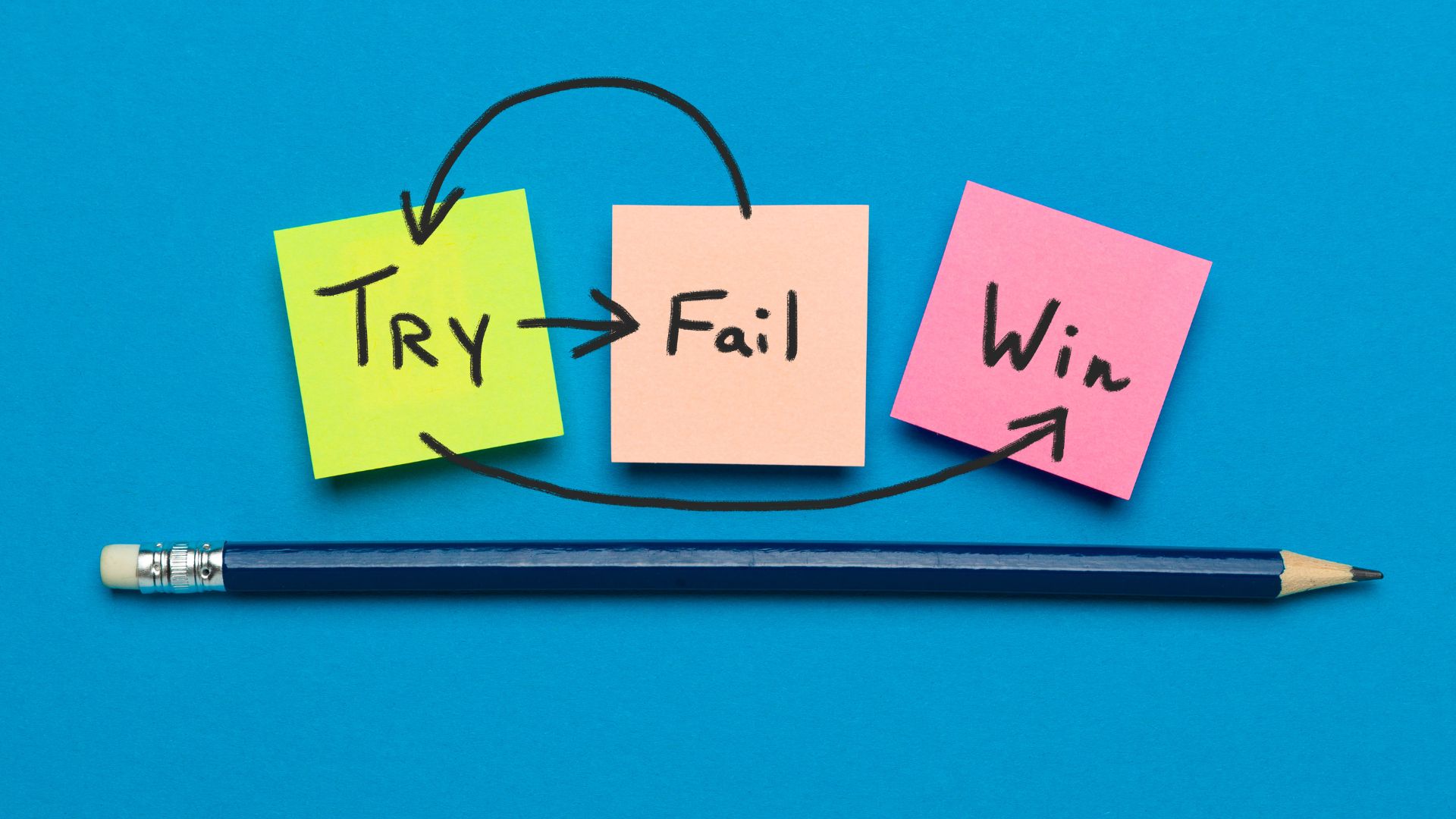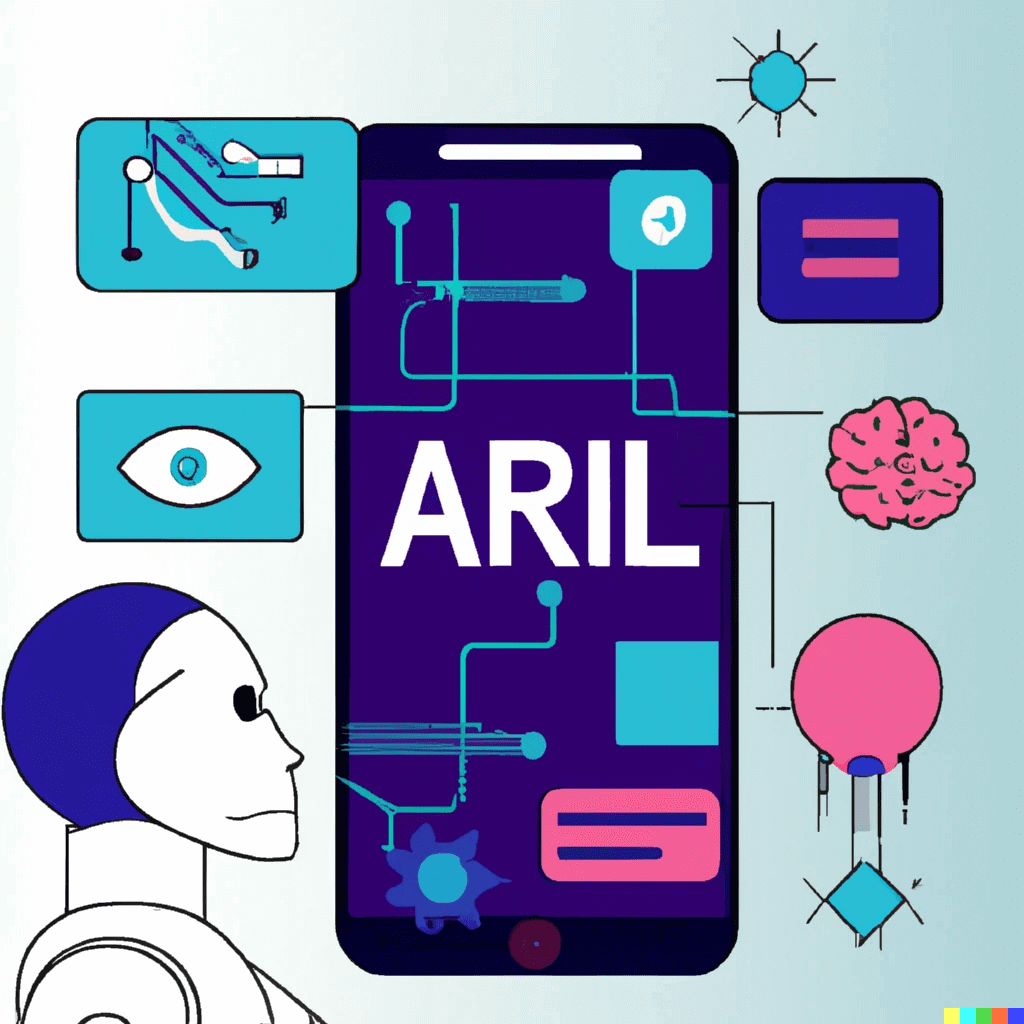-
Find Services
-
Generative AI
-
Blockchain Technology
-
Mobile App Development
-
Software Development
-
Web Development
-
E-Commerce Development
-
App Designing (UI/UX)
-
Web Designing (UI/UX)
-
IoT Development
- Industry
- Manufacturing
- Health Care
- Logistics
- Automotive
- Testing Services
- DevOps
- Game Development
- Robotic Process Automation
- AR & VR Development
- Browse All Services
-
Generative AI
-
Find Agencies
- Submit Reviews
- Research & Surveys

Why do 80% of e-commerce startups fail in the first year?
E-commerce is flourishing in its turn, with world online sales reaching an estimated $8.1 trillion by 2026. At the same time, though there is so much potential, almost 80% of e-commerce businesses go bust in their first year. While the success stories of companies such as Amazon, Shopify, and Alibaba dominate the headlines, the reality for most new ventures is less than glamorous. So, why do most e-commerce startups struggle to survive? This blog will uncover the most significant challenges that lead to failure and how partnering with top-rated e-commerce development companies can make a difference. 1. Poor Market Research & Lack of Product Demand Most entrepreneurs enter the e-commerce arena without checking their business concept. Just because something is popular does not mean there is a long-term demand for it. What Goes Wrong? Selling products that lack long-term market demand. Not recognizing the appropriate target audience. Failure to analyze competitors and market trends. Top Companies Conduct thorough market research using tools like Google Trends, SEMrush, and competitor analysis to understand product viability before launching. 2. Ineffective Website Design & Poor User Experience (UX) Your website is the foundation of your online business. Your customers will leave and never return if it's slow, complicated, or complex. Common Problems: Unresponsive design (not mobile-friendly). Slow page load times. Complex checkout procedures result in cart abandonment. You can partner with experienced e-commerce website development firms specialising in platforms such as Shopify, WooCommerce, Magento, and BigCommerce to develop a fast, responsive, and conversion-driven store. 3. Poor Digital Marketing & Weak Branding Even if you have the best product, nobody will purchase it if they are unaware. Most startups collapse as a result of poor branding and poor marketing strategies. Marketing Failures: Ignoring SEO, paid advertising, and email marketing. Failure to utilize social media to engage with the audience. Dependence on paid advertising alone and neglecting organic traffic development. You can also optimise your website with SEO-focused content. Utilize social media, influencer marketing, and retargeting advertisements. Leverage email marketing to generate leads and foster long-term customer relationships. 4. Pricing & Profitability Issues Most e-commerce businesses have poor profit margins due to inappropriate pricing models. Pricing too high sends customers away, but pricing too low results in losses. Pricing Mistakes: Failing to include cost elements such as shipping, advertising, and transaction fees. Overdiscounting results in feasible revenue streams. You can implement competitive pricing models informed by market intelligence and collaborate with e-commerce agencies or consultants to price goods for the highest profitability. 5. Poor Inventory & Supply Chain Management One of the biggest reasons startups fail is inventory mismanagement. Running out of stock or dealing with long delivery times leads to frustrated customers and negative reviews. Common Mistakes: Overstocking or understocking inventory. Partnering with unreliable suppliers. High return rates due to poor product quality. Inventory management software like Shopify’s built-in tools, Zoho Inventory, or TradeGecko can be used to improve. Choose reliable fulfillment partners like Amazon FBA, ShipBob, or third-party logistics providers. 6. Ignoring Mobile Commerce & Omnichannel Strategy Inventory mismanagement is one of the most significant reasons startups fail. Out-of-stock or long delivery times result in unhappy customers and bad reviews. Common Mistakes: Stocking too much or too little inventory. Working with poor suppliers. High return rates because of low product quality. To improve these common mistakes, inventory management software such as Shopify's native tools, Zoho Inventory, or TradeGecko should be implemented. Select solid fulfilment partners like Amazon FBA, ShipBob, or third-party logistics companies. 7. Poor Customer Service & Lack of Trust Poor customer service kills companies. Customers who cannot get your assistance will look for a competitor. Common Service Problems: Long response times to client requests. There is no transparent refund/return policy. Inadequate management of negative feedback. To solve these problems better, you can implement AI chatbots for real-time customer support and provide a transparent refund and return policy. Show customer feedback, trust badges, and secure payment options to gain credibility for your services. 8. Not Partnering with Reputed E-Commerce Companies One of the most common errors e-commerce startups make is attempting everything in-house rather than collaborating with experienced e-commerce development companies. Why Work with Experts? Expert e-commerce agencies assist with site creation, design, and search engine optimisation. Marketing agencies ensure your store reaches the right audience. Tech support teams assist with troubleshooting problems such as website crashes or security issues. RightFirms brings you in touch with highly-rated e-commerce service providers to assist you in establishing, promoting, and growing your business effectively. Final Thoughts: How to Ensure E-Commerce Success? Though 80% of startups fail, the other 20% succeed due to: Carrying out adequate market research. Collaborating with the best e-commerce development firms. Spending on SEO, marketing, and branding. Providing excellent user experience and customer support. Controlling inventory and pricing. To avoid pitfalls and establish a successful e-commerce business, collaborate with reliable e-commerce professionals listed on RightFirms. Get the Best E-Commerce Development & Marketing Experts Today.

Ready for the future? App ideas to create using ChatGPT in 2023
What is ChatGPT? ChatGPT is a variant of the GPT-3 language model developed by OpenAI specifically for conversational text generation. It has the ability to generate human-like responses to prompts in a conversation, making it a useful tool for chatbots, customer service agents, and other applications that involve natural language interaction. One of the key features of ChatGPT is its ability to understand and generate a wide range of natural language inputs and outputs. It can understand and respond to prompts in a variety of formats, including open-ended questions, statements, and commands. It can also generate responses in a variety of styles, including informative, persuasive, and humorous. In addition to its language processing capabilities, ChatGPT also has several other features that make it well-suited for use in conversational applications. For example, it has a large vocabulary and is able to generate responses in multiple languages. It also has the ability to learn from additional text data and improve its performance over time. Mobile app ideas using ChatGPT As a highly advanced language model, ChatGPT has the ability to generate human-like responses to prompts in a conversation. This makes it a useful tool for building chatbots and other applications that involve natural language interaction. Here are a few mobile app ideas that could be created using ChatGPT: Personal assistant app: ChatGPT could be used to build a personal assistant app that helps users manage their daily tasks and schedules. Users could ask ChatGPT to set reminders, make recommendations, or answer questions about various topics. Language learning app: ChatGPT could be used to build a language learning app that helps users practice their conversational skills. Users could have conversations with ChatGPT in their target language, and ChatGPT could provide feedback and corrections to help them improve. Mental health support app: ChatGPT could be used to build a mental health support app that provides users with a safe and anonymous space to talk about their feelings and concerns. ChatGPT could listen and respond to users in a caring and supportive manner, providing a sense of companionship and comfort. Social networking app: ChatGPT could be used to build a social networking app that helps users connect with others who share similar interests. Users could have conversations with ChatGPT to discover new topics and find like-minded individuals to connect with. Travel planning app: ChatGPT could be used to build a travel planning app that helps users plan their trips. Users could ask ChatGPT for recommendations on destinations, hotels, restaurants, and activities, and ChatGPT could provide personalized suggestions based on the user's preferences and budget. Customer service chatbot: ChatGPT could be used to build a chatbot that provides customer service for a company's products or services. Users could ask ChatGPT questions about how to use the product, request support, or get help with any issues they are experiencing. Virtual therapy app: ChatGPT could be used to build a virtual therapy that provides users with the opportunity to have therapy sessions with a virtual therapist. Users could have conversations with ChatGPT and receive support and guidance on a variety of mental health issues. Recipe recommendation app: ChatGPT could be used to build a recipe recommendation app that helps users find new recipes to try based on their preferences and dietary restrictions. Users could ask ChatGPT for recommendations, and ChatGPT could provide a list of recipes that meet the user's criteria. Fitness tracking app: ChatGPT could be used to build a fitness tracking app that helps users set and achieve their fitness goals. Users could ask ChatGPT for workout recommendations and track their progress with ChatGPT's guidance. Virtual shopping assistant: ChatGPT could be used to build a virtual shopping assistant app that helps users find the products they are looking for and make informed purchasing decisions. Users could ask ChatGPT for product recommendations, comparisons, and reviews, and ChatGPT could provide personalized responses based on the user's needs and preferences. These are just a few examples of the many creative and innovative mobile app ideas that can be created using ChatGPT. By leveraging the power of natural language processing, these apps can provide users with personalized and engaging experiences that help them accomplish their goals and improve their lives. Mobile app development companies listed on RightFirms can help you build your app using ChatGPT by leveraging the advanced natural language processing capabilities of this powerful language model. These companies can work with you to understand your app idea, assess your needs, and develop a custom solution that uses ChatGPT to provide users with personalized and engaging experiences. Advantages of using ChatGPT for mobile apps There are several advantages to using ChatGPT for natural language processing in mobile apps: Human-like responses: ChatGPT has the ability to generate human-like responses to prompts in a conversation. This makes it a useful tool for building chatbots and other applications that involve natural language interaction. By using ChatGPT, developers can create apps that provide users with personalized and engaging experiences that feel more natural and human-like. Flexibility: ChatGPT is a highly flexible language model that can be used to create a wide range of natural language processing applications. It can understand and respond to prompts in a variety of formats, including open-ended questions, statements, and commands. This makes it well-suited for use in a variety of mobile app scenarios, including customer service, language learning, and mental health support. Large vocabulary: ChatGPT has a large vocabulary and is able to generate responses in multiple languages. This makes it a useful tool for building apps that need to support a wide range of languages and topics. Ability to learn from additional data: ChatGPT has the ability to learn from additional text data and improve its performance over time. This makes it a useful tool for building apps that need to adapt and improve their performance based on user feedback or changing circumstances. In conclusion, ChatGPT and other language models have the potential to revolutionize the world of mobile app development. Their ability to understand and generate human-like responses to prompts in a conversation makes them useful tools for building chatbots and other applications that involve natural language interaction. By leveraging the power of natural language processing, developers can create a wide range of mobile apps that provide users with personalized and engaging experiences. Whether it's a personal assistant app, a language learning app, a mental health support app, or any other type of application, ChatGPT and other language models can help developers build apps that are more intuitive and user-friendly. Looking to the future, it's likely that language models like ChatGPT will continue to evolve and improve, enabling developers to create even more sophisticated and advanced mobile apps. As these models become more powerful and flexible, the possibilities for mobile app development are endless, and it's an exciting time to be a part of this growing field.

How to start a business in 2023 – A Complete Guide
Starting a startup can be a challenging but rewarding journey. It requires a combination of passion, hard work, and strategic planning to turn an idea into a successful business. If you're thinking about starting a startup, here's a detailed guide on how to get started: Identify your strengths and passions. The first step in starting a startup is figuring out what type of business you want to create. To do this, it's important to identify your strengths and passions. Think about what you are good at and what you enjoy doing. This will help ensure that you are motivated and energized by the work you are doing. Look for a problem to solve. A great startup idea often starts with identifying a problem that needs solving. Think about the problems you see in your own life or in the world around you. Is there a product or service that you wish existed? Could you create it? By solving a real problem, you'll be more likely to create a business that has real value to customers. Research your market. Once you have a business idea in mind, it's important to research your market to see if there is demand for your product or service. Look for data on the size of your target market, the competition, and potential customers. This will help you gauge the feasibility of your business idea. Develop a business plan. A business plan is a detailed document that outlines your business goals, strategies, and financial projections. It's an important tool for securing funding and getting your business off the ground. Your business plan should include a market analysis, a competitive analysis, a marketing plan, and a financial plan. Secure funding. Depending on the scale of your startup, you may need to secure funding to get it off the ground. There are a variety of funding options available, including venture capital, angel investors, loans, and crowdfunding. It's important to do your research and choose the option that best fits your needs. Build a team. Starting a business can be a solo endeavor, but it's often more effective to build a team of people who can bring different skills and perspectives to the table. As you build your team, look for people who are passionate about your business and are committed to its success. Launch your business. Once you have a solid business plan, funding, and a team in place, it's time to launch your business. This can involve creating a website, building a customer base, and establishing partnerships. It's important to stay focused and be flexible as you work to get your business off the ground. Adapt and grow. Building a successful startup requires a willingness to adapt and grow as you learn from your experiences. Be open to feedback, test new ideas, and be prepared to pivot if necessary. With a focus on continuous improvement and growth, you'll be well on your way to building a successful startup. Starting a startup is not for the faint of heart. It requires hard work, dedication, and a willingness to take risks. But with the right idea, a solid plan, and a strong team, you can turn your startup dream into a reality. Startup ideas to consider in year 2023 It's difficult to predict with certainty what the best startup ideas will be in 2023, as it will depend on a variety of factors including market trends, customer needs, and technological advancements. In 2023, there may be particular opportunities in areas such as remote work and virtual services, sustainable products and services, health and wellness, education technology, and social media and online marketing. Technology will also continue to play a key role in startup success, with areas such as artificial intelligence, virtual and augmented reality, and cybersecurity all offering potential for growth. However, here are a few potential areas to consider as you brainstorm startup ideas: Remote work and virtual services. The COVID-19 pandemic has accelerated the trend towards remote work, and it's likely that this trend will continue even after the pandemic ends. Consider starting a business that offers virtual services or products that cater to remote workers. Sustainable products and services. As consumers become more environmentally conscious, there may be an increased demand for products and services that prioritize sustainability. Consider starting a business that offers eco-friendly products or services. Health and wellness. The pandemic has highlighted the importance of health and wellness, and it's likely that this trend will continue. Consider starting a business that offers products or services related to health and wellness, such as health food, fitness products, or telemedicine services. Education technology. With the shift to remote learning, there may be an increased demand for education technology and online learning platforms. Consider starting a business that offers digital educational resources or tools. Social media and online marketing. As more businesses shift their marketing efforts online, there may be an increased demand for social media and online marketing services. Consider starting a business that helps other businesses with their online marketing efforts. Remember, these are just a few potential ideas and are not meant to be exhaustive. The key to finding the right startup idea is to stay attuned to market trends and customer needs, and to be open to new opportunities as they arise.
